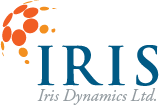- January 30, 2018
Victoria Magnetics Firm Adds Real Feel to Robotics
Victoria magnetics firm adds real feel to robotics
What started as a project to build an affordable flight simulator yoke with a feedback system has helped to turn a Victoria technology firm into a hot commodity in the robotics world.
Iris Dynamics is a five year-old company which has created technology using magnetic fields to create force-feedback joysticks, motion platforms and actuators for use in a variety of applications. And in the process has found a way to put humans back in the game when it comes to robotics.
“If someone is operating a machine, they feel a lot of stuff — vibrations through the body and hands — which communicates a lot of information which can be critical,” said Iris co-founder Patrick McFadden.
“A lot of modern equipment separates the user from that more immersed experience, and there’s a concern that takes the people out of the loop. This technology puts people back in that loop.”
It does so by providing feedback through the control system to the person operating the joystick or simulator — through feel with varying degrees of vibration and tension.
And while that kind of feedback is nothing new, the way Iris has done it is.
The company’s control components glide along programmable magnetic fields controlled by software, a feat that involves very few moving parts, which reduces maintenance, chance of failure and the elimination of noise.
McFadden added the force-feedback controls currently aimed at the average consumer market have neither been done well nor affordably, and those aimed at industry or high-end consumers are extremely expensive and are prone to failure.
Co-founder Kyle Hagen added what they have created will also “change how machines and humans interact with each other. It will make it more intuitive, make it better. This technology will give robots a more gentle touch.”
Hagen said while their flight simulator controls give training pilots the feeling of wind rolling over the aircraft, it can also allow an operator to feel whatever the machine they are operating is feeling.
Iris’ use of what they call magnetic-force manipulation technology can be applied to myriad industries and has McFadden and Hagen optimistic for significant growth.
Their partnerships with other companies in defence-contracting work, the entertainment field, companies creating theme-park rides, industrial controls, flight simulation, virtual-reality simulation and in everyday use like providing better and more reliable control for automatic doors and windows is testament to that.
And following a recent trade show in Las Vegas, they have started considering applications in health care and vehicle manufacturing. (Their joystick technology can emulate gear-shifting in a variety of configurations.)
At this point Iris — which has seven full-time staff working out of a Quadra Street office — has been focused on engineering work for other companies and finding ways of incorporating their technology into a variety of products, which Hagen said gives those partner companies an unfair advantage in the marketplace.
Offering a competitive advantage and intending to take on the world is a far cry from a 2013 Kickstarter campaign that let them get to work on a flight simulator yoke.
